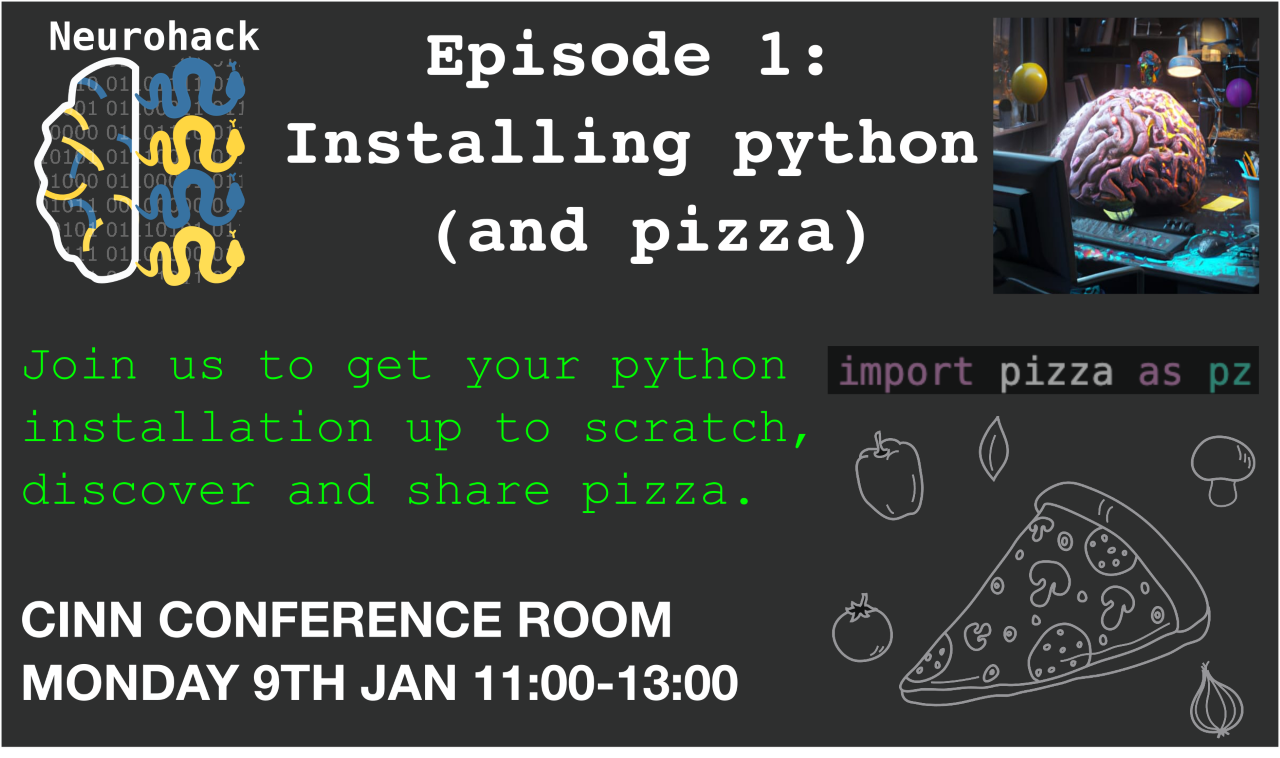
In a bid to improve research skills and practice, for staff and students alike at the School of Psychology and Clinical Language Sciences, Associate Professor Dr Etienne Roesch and Lecturer Dr Nick Hedger will be organising the next season of CINN Neurohack, which will focus on exploring transferable skills for research with Python. The six-week course, to take place every Monday between 11:00-13:00 at the CINN Conference Room, will cover the following topics:
Week 1: Installing Python (Monday 9th Jan)
This week will be centered on de-mystifying the process of installing python. We will talk about managing multiple python environments with anaconda and managing packages with conda and pip.
Week 2: Jupyterlab and basic python expressions (Monday 16th Jan)
This week we will be introducing jupyterlab - a platform for performing interactive and reproducible computing. We will also learn some basic python: lists, numpy arrays, dataframes and useful functions from some basic scientific python packages.
Week 3: Basic git (Monday 23rd Jan)
This week we will introduce git - a powerful version control system (track-changes for code) and much more. Here we will learn how to maintain different versions of files, examine version histories, commit changes and work on different branches.
Week 4: Collaborating with git and github (Monday 30th Jan)
This week we will introduce how to collaborate on scientific projects using git and github. We will introduce pushing and pulling to/from a remote repository, submitting pull requests as well as cloning and forking repositories.
Week 5: Open Data and datalad (Monday 6th Feb)
This week we will introduce how to interact with secondary data stored on repositories like openneuro and amazon web services. We will also introduce datalad, which is a powerful git-based tool for managing large datasets.
Week 6: Organizing a scientific project (Monday 13th Feb)
This week we will introduce how to effectively organize a scientific project into a coherent structure. We will also illustrate how to share scientific projects as installable packages to enhance the reproducibility of your research.
Whilst organised primarily for the SPCLS, the workshop is open to all at the University of Reading. If you are interested in tagging along in person to the first session (where there will be pizza!) please fill out the form here. Otherwise, if you would like to join at a later date, you can do so in person at the CINN Conference Room, located at the Harry Pitt Building, or by joining online through the CINN Community Teams channel.

